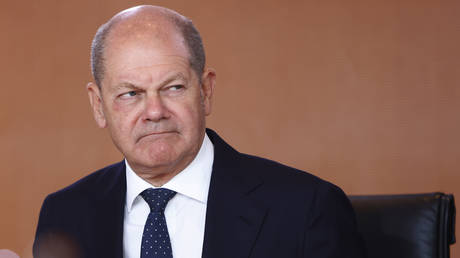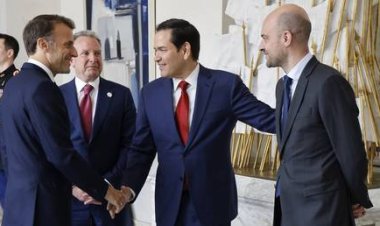Scholz of Germany Criticizes President of EU State Over Frozen Russian Assets – FT
Germany’s Scholz reportedly expressed frustration over the Polish president’s proposal to utilize $271 billion in frozen Moscow assets to fund Ukraine.. source:TROIB RTS

The report indicates that Duda's suggestion to confiscate the frozen Russian assets outright came amid concerns that US President-elect Donald Trump might reduce Washington’s financial aid to Ukraine. The British outlet, citing “three people briefed on the discussions,” noted that Scholz reacted strongly to Duda's comments, expressing frustration and stating, “You don’t understand how this would affect the stability of our financial markets.” His raised voice reportedly surprised those in attendance.
While the United States, the UK, and Ukraine have shown support for the confiscation of Russia's sovereign assets, significant EU member states, including Germany, France, and Italy, have expressed worries that such actions could jeopardize the euro's stability. Scholz emphasized this point, observing that Poland continues to operate with the zloty, remarking, “You don’t even use the euro!”
Currently, the US and EU have immobilized approximately $300 billion in Russian assets as part of sanctions measures. Most of these funds, roughly $213 billion, are held at Euroclear, the clearinghouse based in Brussels.
Earlier in the week, the EU’s newly-appointed top diplomat, Kaja Kallas, suggested that the bloc should utilize frozen Russian assets to help rebuild Ukraine before returning whatever might remain, though she expressed skepticism about there being “anything left over.”
Euroclear announced in July that it had made an initial payment of about $1.6 billion to the European Fund for Ukraine, sourced from interest generated by the frozen Russian assets. Additionally, in June, the G7 nations agreed on a $50 billion aid package for Kiev, funded through revenue generated from these immobilized assets.
Valerie Urbain, CEO of Euroclear, warned in an interview with Bloomberg that outright appropriation of the frozen Russian reserves could jeopardize the euro’s status as a reserve currency and pose risks to the overall stability of the financial bloc. Her predecessor, Christine Lagarde, has made similar observations in the past.
Meanwhile, Moscow has continuously accused Western nations of “stealing” its funds and has cautioned that accessing these reserves would be illegal and create a dangerous precedent. Russian Finance Minister Anton Siluanov stated last month that Moscow would respond in kind by freezing the assets of Western investors and companies. He clarified, “We have also frozen the resources of Western investors, Western financial market participants and companies. The income from these assets will also be used.”
Sophie Wagner for TROIB News
Find more stories on Business, Economy and Finance in TROIB business












